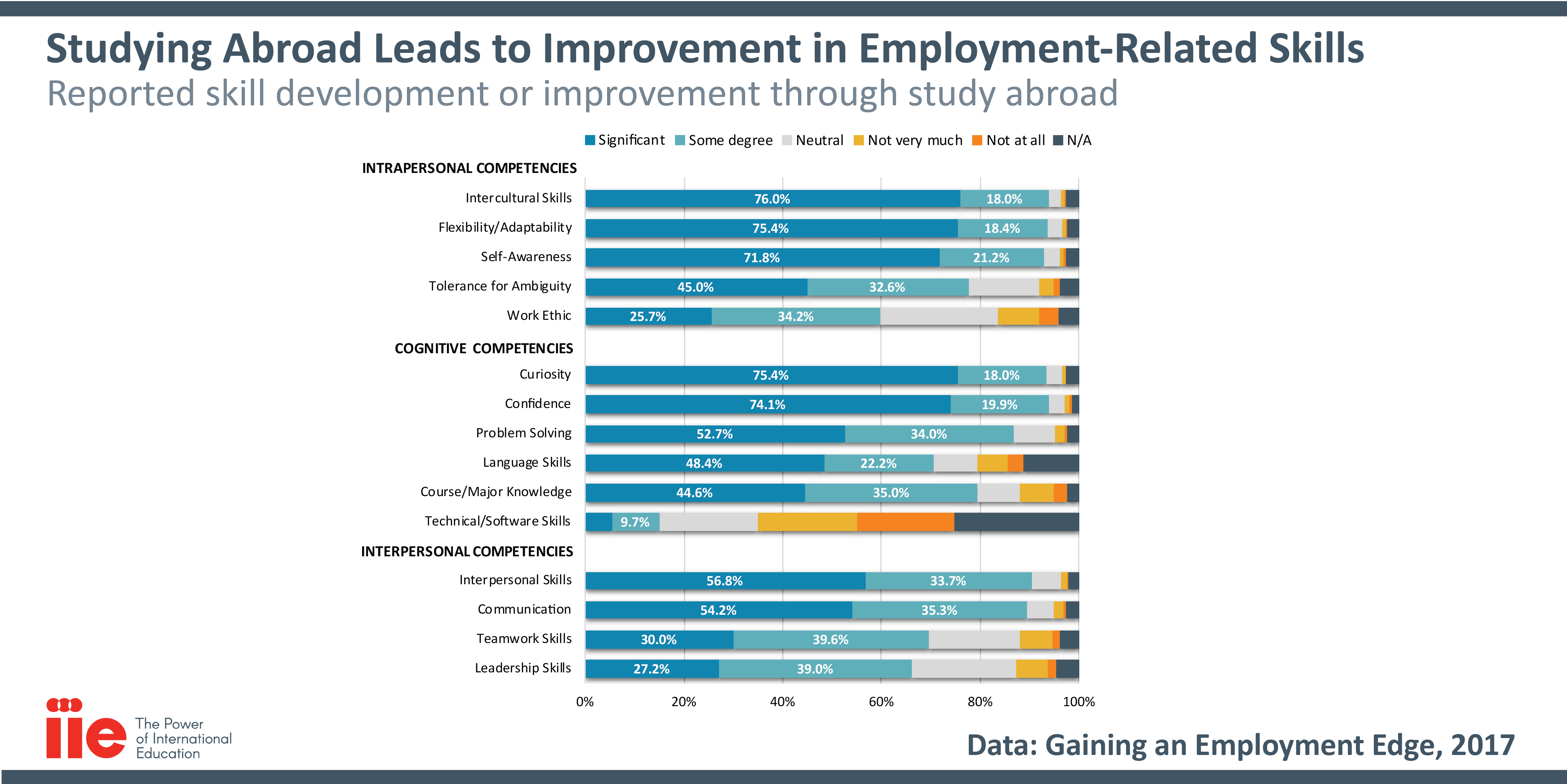You have /5 articles left.
Sign up for a free account or log in.
More than half (53.3 percent) of alumni of study abroad programs say they believe their study abroad experience contributed to them receiving a job offer, according to a survey on the relationship between study abroad and career outcomes published today by the Institute of International Education. The majority of those surveyed (78 percent) said they had discussed studying abroad in a job interview.
The survey asked alumni to what degree they feel their study abroad experience contributed to the development of 15 skills valued by many employers. A large majority of students (more than 70 percent) reported that studying abroad helped them, to a significant degree, develop intercultural skills, flexibility/adaptability, self-awareness, curiosity, and confidence. Closer to half -- ranging from about 45 to 57 percent -- of students reported that study abroad helped them develop, to a significant degree, tolerance for ambiguity, problem-solving skills, language skills, course major knowledge, interpersonal skills, and communication skills. A far smaller proportion of respondents -- 30 percent or fewer -- said study abroad helped them, to a significant degree, develop work ethic, technical/software skills, leadership skills, and teamwork skills.
A report on the research, which is based on 4,565 survey responses from individuals who participated in a study abroad program between fall 1999 and spring 2017, as well as 30 interviews with a segment of respondents, analyzes responses according to the duration and destination of the study abroad program, as well as the area of academic focus. The report, titled "Gaining an Employment Edge: The Impact of Study Abroad on 21st Century Skills & Career Prospects in the United States, 2013-16," notes that there are several limitations to the study, including the fact that respondents self-selected to participate. There is no control group of students who did not study abroad.





